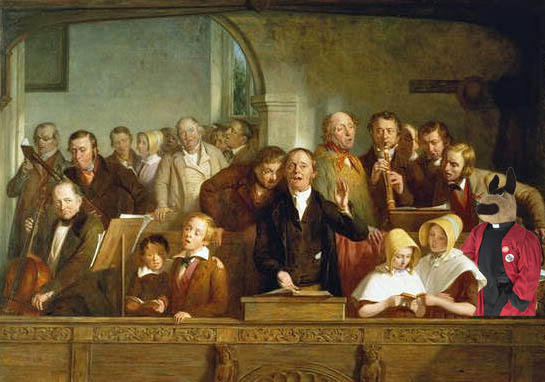My dear Gnudren,
Old Gnu has been silent awhile for he has had to help ‘bury’ two good friends. He believes that they have waded into the river and come out the other side gloriously. He has also been visiting the NHS to see how they are all getting on. This is what old codgers do. But there has been much concertising and valiant attempts to sing in tune. He has also been on his travels.
He has collected a number of slogans picked from his pilgrimage to the South East of England and offers two for your contemplation. He came across a certain Mr. W. S. Churchill who said:
“We make a living by what we get. We make a life by what we give.“
Why didn’t Jesus put this in the Bible. O dear, I’m forgetting, Jesus didn’t write the Bible. Does anyone know who did?
I’m sure this saying came to Mr. W. S. Churchill when he was sitting by his ornamental fish pond. He loved to sit there and meditate. We can be sure of this because it’s written in stone:

I’m sure Jesus would have agreed with him, although I’m sure Jesus would not agree with everything he or we say and do.
Here is another slogan that Old Gnu found in the workshop/warehouse of his cousin in Whitstable:

“Only when the last tree has been cut down, the last fish been caught, and the last stream poisoned, will we realize we cannot eat money.”
I wonder if Jesus would agree with that, or would he have put it more gently and christianly? After all, I’m sure Jesus was a christian.
On another note Old Gnu has been recently caught up in writing music in West Gallery style. This genre of music was significantly helped by the earlier actions of Mr. O. Cromwell and his followers, who apparently had round heads. They insisted on getting rid of those instruments of iniquity that were found in parish churches known as organs. And we all know what iniquities are performed in organ lofts. (Mr. Bach, the J.S. one, was reprimanded for having a young lady in his organ loft with whom he had 7 children, but that was later and not in the organ loft. He also had 13 more children with another young lady who definitely was not in the organ loft, and after the first one in the organ loft died.) So you can understand why many organs were taken to hostelries (pubs) and there provided music which I suspect was neither ancient or modern. The parish churches meanwhile got together unlearned instrumentalists, many of whom were part of the village band to accompany music at church services. They played in what academics would call Broken Consorts. This does not mean their instruments were broken, although they may well have been. It means that the band was made up of instruments of different sorts. And truly, there were Serpents and Hautboys mingled with string instruments and other things past imagining. What is more they wrote music that academics regarded of the worst sort, which was full of parallel and consecutive 5ths and broke all the rules:

No one band was the same. A very cross Mr. S. S. Wesley, [he had a bad temper and liked fishing, but despite that wrote some beautiful music], and others came along in the early 19th century intent on stamping out this music of ignorant peasants who doubled as the village pub musicians. West Gallery repertoire [so called because the musicians usually played from the gallery at the back of the church] has an abundance of jolly pieces, psalm settings, hymns, anthems that like most Folk Music (also written by ignorant peasants, but respectable after about 200 years) doesn’t follow or even know the rules of academics.

In place of this Mr. S. S. Wesley introduced Anglican Chant, difficult for ordinary people to sing but beautiful once one has acquire the very smooth “the Lord be with you” Anglican intonation. Compared to the West Gallery repertoire, much of which you could dance to, it is relatively limp. You try dancing to Anglican Chant and you will see what Old Gnu means; but please do it in a corner of the church where no one can see you. And alas, Mr. Wesley and his like minded friends did succeed in eliminating West Gallery music from churches within 3 decades. Organs were rebuilt [nice], but all the bands were thrown out because they were ignorant peasants who knew nothing about music [not nice]. Why couldn’t they all work together? Co-operation was an important word Gnu learnt from an episode of Sesame Street some years ago. He has never forgotten it. Old Gnu first discovered West Gallery music [mostly in manuscripts and archives] in the late 1980’s. GNU 011, All About the Courtly Stable, was a nod in that direction. In 2017, quite by accident he found himself by the seaside at Sidmouth and at the Folk Music Festival. He remembers it well because he was eating a delicious ice cream at the time. There, to his surprise, Old Gnu discovered that early in the 1990s a West Gallery Music association was started in order to resurrect this music. And so in his retirement he has started writing pure West Gallery music. He is currently engaged on producing an album of the stuff. This will wade in at GNU 021. The post Christ Church Clifton Albums [GNU 014 to GNU 020] were written, collated/recorded and frequently played, for a discerning audience of connoisseurs.

Old Gnu will be approaching some fabulous singers and musicians to record this West Gallery Album in a one day session. Hopefully this album will be on release on this website for the sum of £0.00p [incl. VAT] early in 2020, unless there is divine intervention or the fabulous singers and musicians he approaches refuse. In which case he will have to blackmail them or use fear tactics of what might happen if they don’t support him, like Mr. Trump.
Vetus Pater Gnu
Academiae Musicorum et Theologia
Organum scamnum LA
XXIV Quintilis MMXIX

